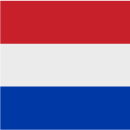– Emile Durkheim
Autonomy refers to the capacity or freedom of an individual, entity, or system to govern itself, make its own decisions, and act independently. The concept is broad and can be applied to various contexts, including personal autonomy, political autonomy, organisational autonomy, and autonomy in artificial intelligence. Execution of justice is often viewed as black and white, rather than fluid. You are in prison or outside. Can we transform the idea of reintegration into a gradual regain of autonomy? How can a detention house support the growth of an individual in their autonomy as a citizen? If so, how do we shape that?

Autonomy refers to the capacity or freedom of an individual, entity, or system to govern itself, make its own decisions, and act independently. The concept is broad and can be applied to various contexts, including personal autonomy, political autonomy, organisational autonomy, and autonomy in artificial intelligence. Execution of justice is often viewed as black and white, rather than fluid. You are in prison or outside. Can we transform the idea of reintegration into a gradual regain of autonomy? How can a detention house support the growth of an individual in their autonomy as a citizen? If so, how do we shape that?
Meet colleagues across Europe pursuing the same goal. Contribute your knowledge to the community. Be the first to hear the latest developments on small scale forms of detention. Unlock your curiosity and become part of the RESCALED community.





Right to autonomy
Homestay
Personal belongings
Money
Nutrition
Social climate
Social health and mutual trust
A solid security framework shall be set up where in each setting there are three distinct, but inter-related elements of security: relational security, procedural security and static security.
Relational security
Procedural security
Static security
Time and time-use
Daily routines
The European Rules on Detention Houses (ERDH) is a milestone document for the criminal justice system and reflects the larger impact of this system on society. Drafted by representatives with different legal and cultural backgrounds from all regions of Europe, the ERDH were launched on October 31st as common standards to implement small-scale, differentiated and community-integrated detention houses in the European Union, as part of a pivotal change already happening in criminal justice systems across Europe. The ERDH set out the ecosystem of a detention house on its own and as part of, and within a community and society, emphasizing sustainability. As the European Prison Rules have been common standards for large-scale prison institutions, the European Rules on Detention Houses shall form essential standards for detention houses, in order to guarantee a way of liberty deprivation that is humane and more fit for the 21stcentury.
The European Rules on Detention Houses (ERDH) is a milestone document for the criminal justice system and reflects the larger impact of this system on society. Drafted by representatives with different legal and cultural backgrounds from all regions of Europe, the ERDH were launched on October 31st as common standards to implement small-scale, differentiated and community-integrated detention houses in the European Union, as part of a pivotal change already happening in criminal justice systems across Europe. The ERDH set out the ecosystem of a detention house on its own and as part of, and within a community and society, emphasizing sustainability. As the European Prison Rules have been common standards for large-scale prison institutions, the European Rules on Detention Houses shall form essential standards for detention houses, in order to guarantee a way of liberty deprivation that is humane and more fit for the 21stcentury.
Right to autonomy
Homestay
Personal belongings
Money
Nutrition
Social climate
Social health and mutual trust
A solid security framework shall be set up where in each setting there are three distinct, but inter-related elements of security: relational security, procedural security and static security.
Relational security
Procedural security
Static security
Time and time-use
Daily routines
The goal of the European Guidelines on working with relational security in small-scale forms of detention is to develop a shared perspective on working in detention houses. The aim of growing the knowledge and network about detention houses is to create a supportive ecosystem for people in detention houses that is dependent on the culture that people create together.
Together, we want to create a space where everyone can feel accepted and respected – regardless of gender identity, skin colour, religion, ethnicity or ability. We assume that all participants come to our events with the best intentions and treat each other with respect.